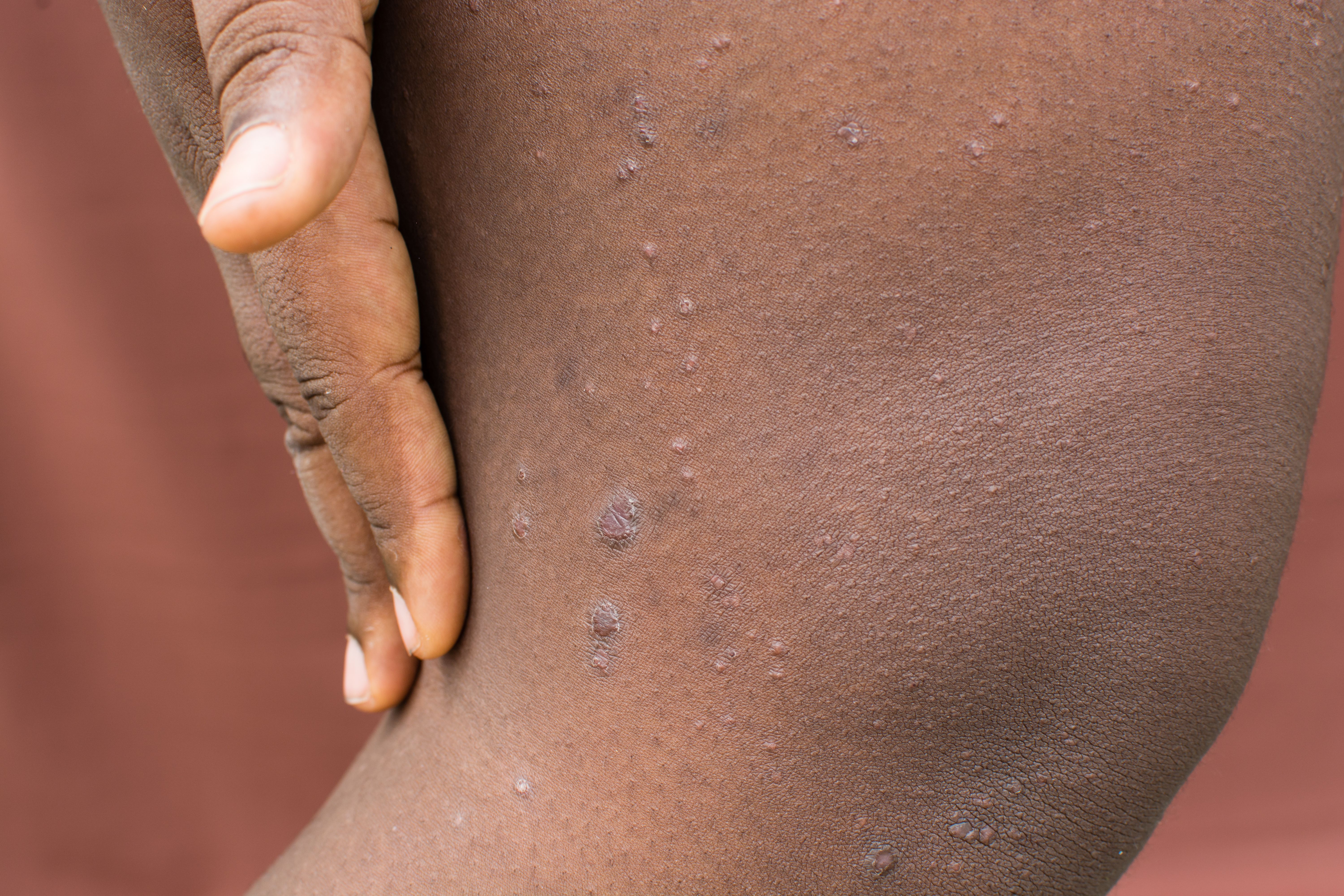News
Article
Harnessing AI for Improved Outcomes in Hidradenitis Suppurativa Management
Author(s):
An Italian review highlighted the potential of AI to enhance early diagnosis and treatment of hidradenitis suppurativa, though challenges such as data privacy, algorithm bias, and interpretability must be addressed to fully leverage AI's benefits in dermatology.
In routine follow-ups for hidradenitis suppurativa (HS), evidence has shown that artificial intelligence (AI) is highly adaptive and could improve the early diagnosis of HS, according to an Italian review published in Italian Journal of Dermatology and Venereology.1
Image credit: sdecoret - stock.adobe.com

HS is a chronic skin condition causing painful nodules and abscesses, often in friction areas, and is difficult to diagnose, leading to treatment delays. The incidence of HS in Italy is not fully established, with only a few studies providing estimates. Prevalence estimates vary widely, ranging from 5 in 10,000 people to 4 in 100 people. These large variations can be attributed to factors such as differing selection procedures, diagnostic criteria, and variations in the sex and age distribution of the study samples.2
Current methods of diagnosing HS depend on visible symptoms, often appearing in later stages, making late diagnosis common. This delay leads to prolonged suffering and worsens the disease. There is a need for better diagnostic tools for early detection.
Research is focusing on imaging techniques like ultrasound and MRI to identify early signs of HS and integrating machine learning and AI to analyze clinical data and detect subtle changes before overt lesions appear. These advancements could improve early diagnosis and management of HS, but challenges remain in making these tools accessible and cost-effective. Despite these challenges, new technologies, such as AI tools, hold promise for better patient outcomes and care.
In dermatology, AI is improving diagnostic accuracy. AI can aid in image analysis, identifying subtle patterns in skin lesions that may be missed by the human eye, which is crucial for early HS detection. It can also provide objective, standardized analyses, reducing the subjectivity of traditional methods.
“The amalgamation of clinical acumen with AI-driven insights empowers dermatologists to not only enhance diagnostic accuracy but also opens avenues for personalized and optimized treatment strategies, thereby improving outcomes for individuals grappling with the challenges of hidradenitis suppurativa. The dermatologist’s point of view on AI integration in HS management is characterized by a commitment to precision, personalization, and ongoing learning, ultimately redefining the standards of care in dermatology,” the authors wrote.
AI algorithms analyze data in various data types to create precise and customized diagnoses:
- Clinical records: AI examines patient histories, including prior treatments and disease progression, to find patterns and correlations
- Images: High-resolution dermatological images help AI recognize lesion characteristics, assess severity, and track changes over time
- Biochemical exams: Data from skin swabs or biopsies provide molecular insights, with AI identifying biomarkers related to disease activity
- Blood exams: Routine blood tests offer systemic information on inflammation and immune response, which AI correlates with HS symptoms
- Immunology tests: Specialized tests, such as cytokine profiling, help AI understand immune dysregulation in HS and inform treatment strategies
- Omics data: Genomics, transcriptomics, and proteomics data help AI understand molecular interactions, key pathways, and potential therapeutic targets
Advancements in AI, wearable electronics, and telemedicine are promising for improving HS diagnosis and management. A proposed AI framework for HS would integrate diverse data types (electronic health records, epidemiology, multi-omics, patient lifestyle) and require robust statistical methods for validation. The authors emphasized that effective integration of AI into clinical practice is crucial for enhancing patient care, necessitating a deep understanding of clinical workflows and a clear translation roadmap.
However, AI integration does not come without some challenges:
- Data privacy: The vast amounts of sensitive patient data processed by AI require stringent safeguards against unauthorized access and strict compliance with privacy regulations
- Algorithm bias: AI models must be trained on diverse, representative datasets to avoid biases that could lead to unequal diagnostic outcomes across different demographic groups
- Interpretability: The "black box" nature of many AI algorithms makes it difficult for health care professionals to understand AI decisions
The authors stressed that AI deployment in dermatology should maintain transparency, involve human oversight, and strike a balance between automation and human intervention.
“Addressing [these] issues…is crucial for the ethical and responsible implementation of AI in clinical settings. By mitigating these challenges, the field can harness the full potential of AI to revolutionize dermatological care, providing more precise and timely diagnoses while upholding the highest standards of patient privacy and ethical practice.”
References
1. Crovella S, Suleman M, Tricarico PM, Al-Khuzaei S, Moltrasio C, El Omri A, et al. Harnessing artificial intelligence for advancing early diagnosis in hidradenitis suppurativa. Ital J Dermatol Venereol. 2024;159:43-49. doi:10.23736/S2784-8671.23.07829-5
2. Betolli V, Cazzaniga S, Scuderi V, Zedde P, Di Landro A, Naldi L. Hidradenitis suppurativa epidemiology: from the first Italian registry in 2009 to the most recent epidemiology updates - Italian Registry Hidradenitis Suppurativa project 2. J Eur Acad Dermatol Venereol. 2019:33;6:4-6. doi:10.1111/jdv.15826
Newsletter
Stay ahead of policy, cost, and value—subscribe to AJMC for expert insights at the intersection of clinical care and health economics.





